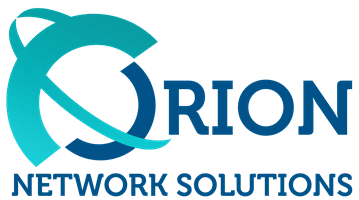Is Your Washington DC Organization Ready For The AI Revolution?
In this month’s tech update, we dive into the exciting world of artificial intelligence (AI) and explore its rapidly evolving impact on the business landscape. As we have seen, groundbreaking technologies, such as chat GPT, continue to emerge, leading to massive shifts in the industry. Microsoft has even integrated its co-pilot Services into the flagship Microsoft 365 Suite. However, risks also arise along with the numerous advantages of AI, making it crucial for organizations to establish clear rules and policies regarding AI usage.
To help organizations harness the power of AI while minimizing risks, it’s essential to implement a comprehensive AI policy that employees adhere to. Such a policy should cover the purpose of AI usage, emphasize human oversight, ensure data security, and promote a commitment to learning and improving AI technologies.
Key Takeaways
- AI is revolutionizing the business landscape, as evidenced by the emergence of groundbreaking technologies and Microsoft’s integration of co-pilot services.
- Establishing a comprehensive AI policy is crucial to addressing the risks and ensuring the responsible use of AI within organizations.
- Our sample AI policy, available for free, can help organizations begin crafting their AI rules and guidelines.
AI Revolution in Business
Over the last year and a half, we have seen a rapid transformation in the business world due to the advancement of artificial intelligence technology. Groundbreaking developments like Chat GPT are at the forefront of this revolution, while we also hear concerns about AI’s implications.
Microsoft’s recent integration of its Co-pilot services into the Microsoft 365 Suite shows that AI is moving the industry in a new direction. With such significant technology comes certain risks that we must address responsibly.
Organizations often overlook the necessity of defining clear rules and policies for AI usage in their operations. AI carries both immense benefits and potential hazards, making it crucial to create a well-developed AI policy for employees to follow.
Your AI policy should resemble your social media usage guidelines but be tailored to governing AI tools, such as Chat GPT or Microsoft Co-pilot. The contents of your AI policy will depend on your organization, but we’ve observed some frequent elements in successful policies:
- Purpose of AI usage
- Emphasizing human oversight
- Ensuring data security and confidentiality
- Committing to ongoing learning and improvement in AI technology
We encourage you to devise an AI policy that encompasses the abovementioned aspects and fits your organization’s unique needs. To assist you, we offer a sample AI policy that is available for download on our website.
Remember, keeping up to date with the latest technologies is essential for thriving in the competitive business landscape. If you ever need help navigating the evolving world of AI, don’t hesitate to reach out for support.

Rise of Groundbreaking AI Technologies
In just a year and a half, we’ve seen astonishing advancements in AI, such as Chat GPT, drastically changing the business landscape. As a testament to its significance, Microsoft has integrated its co-pilot services into the widely used Microsoft 365 suite. Despite its immense potential, we must not overlook the accompanying risks that warrant our attention.
One area organizations should pay special attention to is developing clear guidelines and policies on AI usage. Like social media protocols, AI tools like Chat GPT and Microsoft Co-pilot need proper governance. To help your organization, we’ve compiled a few standard components that an AI policy should include:
- Purpose of AI usage: Outline the reasons and ways AI will be used in your business operations.
- Human oversight: Emphasize the importance of balancing human and AI involvement.
- Data security and confidentiality: Implement measures to ensure data protection and privacy using AI technologies.
- Continual learning and improvement: Commit to consistently enhancing and optimizing AI technologies in your organization.
Microsoft’s Adoption of AI Co-Pilot Features
As we continue to explore the rapid advancements in artificial intelligence, we can’t ignore that AI has become an integral part of the business landscape. Over the past year and a half, we have seen the rise of innovative AI technologies, such as chat GPT, and industry leaders voicing their concerns about AI implications. Microsoft’s recent integration of Co-Pilot Services into their flagship Microsoft 365 Suite demonstrates a substantial shift in the industry, confirming that AI is here to stay.
However, our enthusiasm for AI should not overshadow the risks associated with its widespread use. One essential aspect that many organizations often neglect is the establishment of comprehensive rules and policies governing AI usage within their operations. Just as there are guidelines for social media use, it is crucial to develop policies for AI tools such as chat GPT or Microsoft Co-Pilot.
While the contents of an AI policy will vary depending on your organization’s needs, there are common aspects frequently found in these guidelines:
- Purpose of AI usage: Define the reasons and objectives for using AI within your organization.
- Human oversight: Emphasize the importance of human supervision in AI deployments to prevent misuse and ensure optimal decision-making.
- Data security and confidentiality: Establish robust measures to protect sensitive information using AI technologies.
- Commitment to ongoing learning and improvement: Show dedication to staying up-to-date with AI advancements and adapting to the evolving landscape.
The Unavoidable Presence and Potential Hazards of AI
Artificial intelligence has undeniably transformed the business landscape by integrating services like Microsoft’s Co-pilot into their key product suites. However, this powerful technology harbors risks that cannot be overlooked. Organizations must establish clear guidelines and policies regarding AI usage within their operations.
Just as there are policies for social media usage, similarly defined rules must be in place for AI tools such as GPT-Chat or Microsoft Co-pilot usage. While the specifics of an AI policy will differ from one organization to another, some prevalent components are:
- Purpose of AI usage: Clearly outline why and when AI should be employed within the organization.
- The necessity of human oversight: Stress the importance of human involvement in AI-based decision-making processes.
- Data security and confidentiality: Establish measures to protect sensitive information, ensuring AI systems align with data security practices.
- Commitment to continuous learning and improvement: Emphasize the organization’s dedication to staying updated about AI technologies and refining AI usage practices.
While the significance of AI in today’s world is unquestionable, being well-prepared and proactive in addressing the accompanying risks is just as important. By establishing a solid AI policy, organizations can reap the benefits of cutting-edge technology while mitigating potential hazards.
The Urgency for AI Policies in Our Organizations
Artificial intelligence is rapidly transforming the business world, as evidenced by the introduction of groundbreaking technologies like chat GPT and the integration of Microsoft’s Co-pilot services into their Microsoft 365 Suite. While advancements in AI offer tremendous benefits to organizations that can harness their power, some risks warrant attention. Just like having policies for social media usage, organizations must establish and enforce guidelines for using AI tools such as chat GPT or Microsoft Co-pilot.
Your AI policy may vary according to your organization’s needs. However, certain key elements are vital to address:
- Purpose of AI usage: Clearly defining the intended use of AI tools within your organization ensures that employees understand when and how to harness AI technology effectively.
- Human oversight: Emphasize the importance of human involvement in decision-making processes, even when AI tools assist them. Accountability and responsibility should rest with humans, not machines.
- Data security and confidentiality: Address measures for protecting sensitive data and maintaining confidentiality when using AI technologies. Confidentiality is crucial to maintaining the trust of your stakeholders and clients.
- Commitment to ongoing learning and improvement: Encourage your team members to learn and stay informed about advancements in AI technologies continuously. This will help your organization adapt to the evolving AI landscape and make the most of emerging technologies.
Key Elements of an AI Policy
AI Usage Goals
AI offers immense advantages for those who know how to harness its power, but it also comes with risks. That’s why our organization needs to establish clear rules and goals for AI usage within our operations. By outlining the purpose of AI usage, we ensure that all employees employ these tools responsibly and effectively.
The Role of Human Oversight
Even though AI technologies are becoming increasingly advanced, human oversight is crucial to ensure that decisions and actions are made with proper consideration and accountability. By balancing AI and human contribution, we provide the accuracy, reliability, and ethical use of AI in our organization.
Ensuring Data Security
As AI technologies rely on vast amounts of data, it is essential to implement strong data security measures. This includes encryption, controlling access to sensitive information, and monitoring for potential vulnerabilities. We protect our organization and clients from potential threats and breaches by prioritizing data security.
Protecting Confidentiality
Like in any other aspect of our business, maintaining confidentiality is also necessary when using AI tools. By actively establishing measures to protect sensitive information, we comply with legal requirements and foster trust within our organization and among our clients.
Dedication to AI Advancements
As AI technologies constantly evolve, our organization must stay up-to-date and committed to ongoing learning. By investing in AI advancement and encouraging professional development among our employees, we strive to harness the full potential of AI tools and drive innovation in our operations.
Free AI Policy Sample
As we continue exploring AI technologies, it’s crucial to have clear guidelines and policies for using AI in our business operations. Like social media usage rules, we need policies that govern AI tools such as Chat GPT or Microsoft Co-pilot.
So, what should an AI policy include? While it will differ from one organization to another, typical elements consist of:
- Purpose of AI Usage: Define the organization’s objectives and rationale behind implementing AI.
- Human Oversight Importance: Recognize humans’ crucial role in supervising AI, ensuring ethical decision-making, and avoiding potential pitfalls.
- Data Security and Confidentiality Measures: Clarify the steps to safeguard sensitive information and maintain a secure environment when utilizing AI systems.
- Ongoing Learning and AI Improvement Commitment: Stress the need for continuous education and enhancement of AI technologies to keep up with the rapidly changing landscape.
To get you started, we’ve prepared a free sample AI policy that is available for download from our website. Follow the link in the description below to access your copy. Remember to like, comment, and subscribe to our channel for more updates on technology! Feel free to contact us if you’re seeking a reliable IT company that keeps you informed about the latest and emerging technologies.
Wrapping Up and Encouraging Proactivity
As we witness the awe-inspiring progress of AI and its growing impact on businesses, it’s imperative to address the associated risks while embracing its potential. A considerable aspect that many organizations need to prioritize is the implementation of well-defined rules and policies for AI usage.
To effectively utilize the power of AI and mitigate risks, we recommend that your organization establish a comprehensive AI policy, just as you would have guidelines for social media usage. It’s essential to ensure adherence to these policies when using AI tools like ChatGPT or Microsoft Co-pilot.
Common elements of an AI policy could include:
- Clearly stating the purpose of AI usage
- Emphasizing the importance of human oversight
- Implementing data security and confidentiality measures
- Committing to ongoing learning and improvement in AI technologies
To assist in developing your organization’s AI policy, we invite you to download a free sample from our website.
We appreciate your continued support and engagement with our monthly tech updates. Feel free to like, comment, and subscribe to our channel for more insightful information. Should you require a dependable IT partner to guide your organization through the ever-evolving world of technology, please don’t hesitate to contact us.














